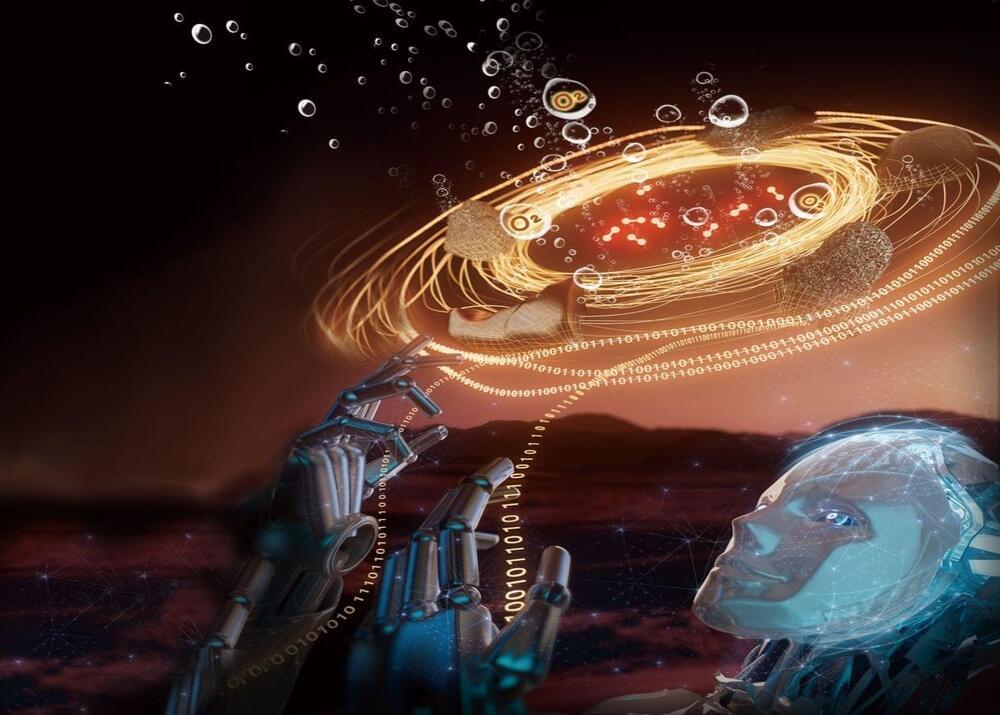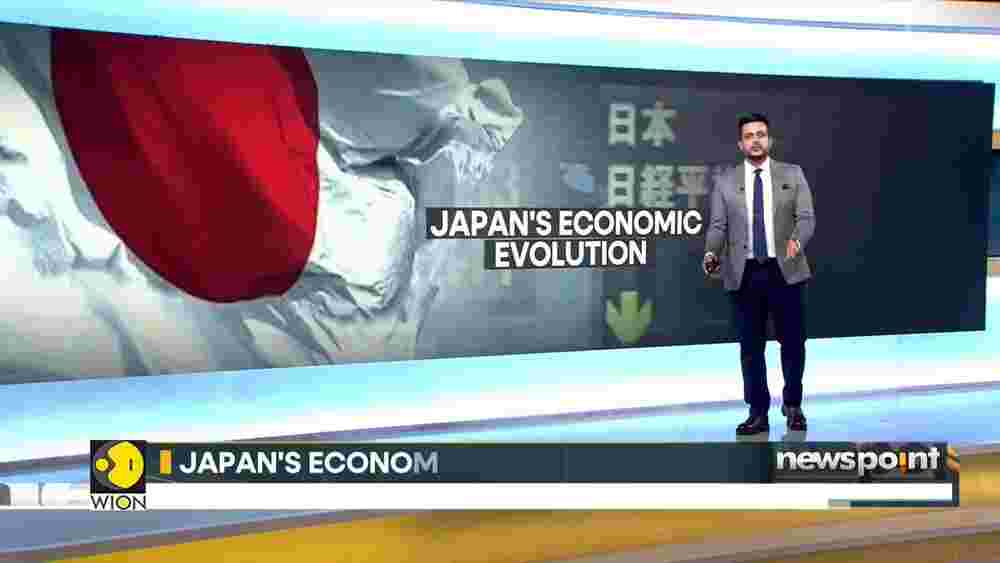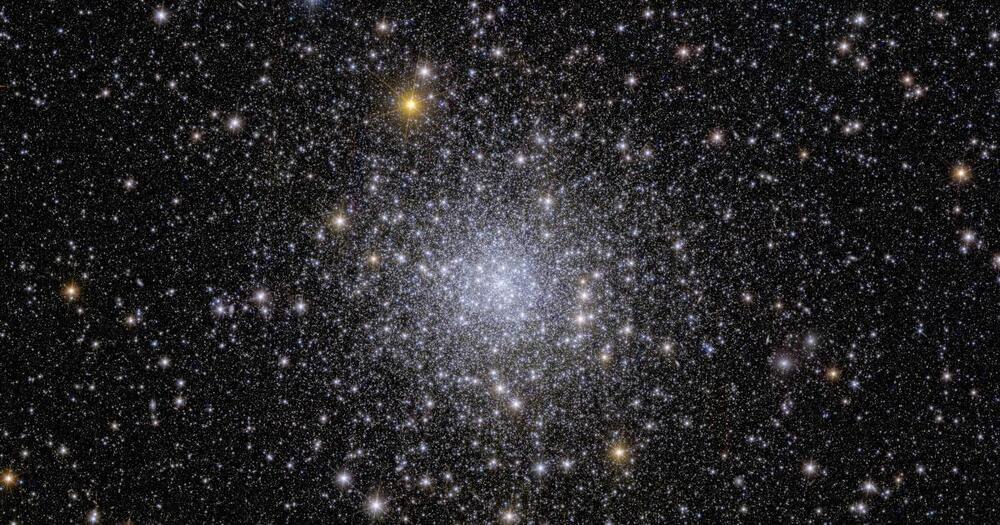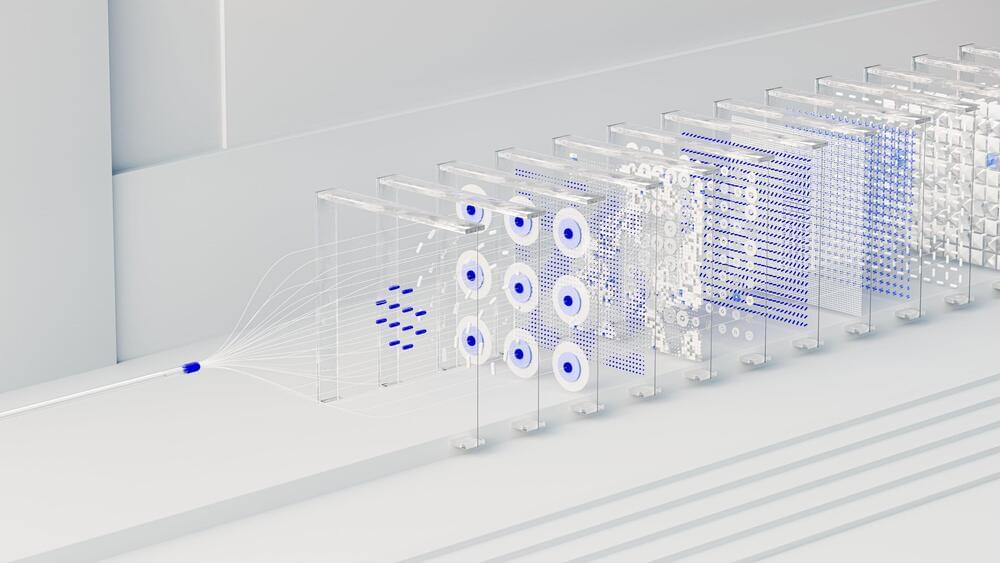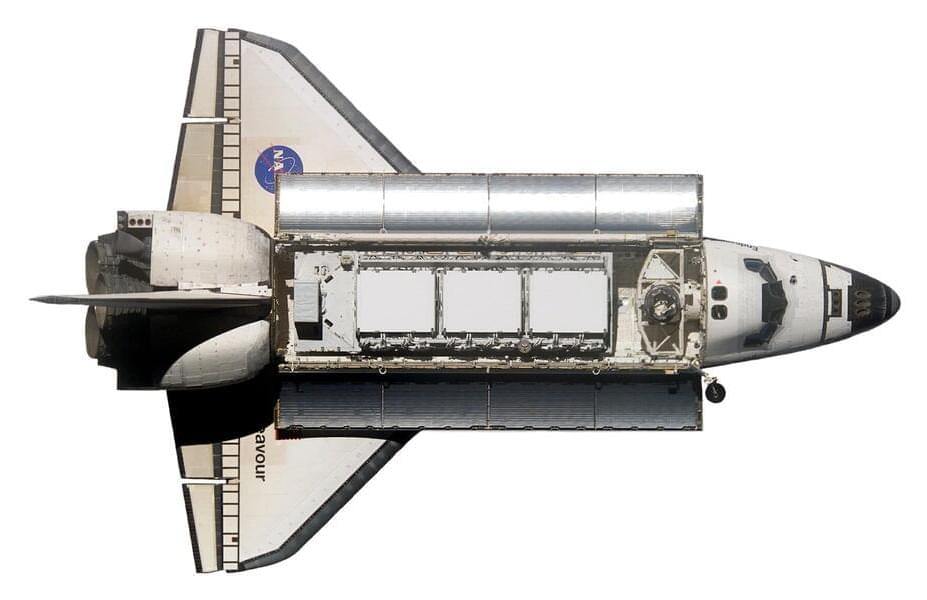A robotic AI-Chemist@USTC makes useful Oxygen generation catalyst with Martian meteorites. (Image by AI-Chemist Group at USTC)
Immigration and living on Mars have long been depicted in science fiction works. But before dream turns into reality, there is a hurdle man has to overcome — the lack of essential chemicals such as oxygen for long-term survival on the planet. However, hope looms up thanks to recent discovery of water activity on Mars. Scientists are now exploring the possibility of decomposing water to produce oxygen through electrochemical water oxidation driven by solar power with the help of oxygen evolution reaction (OER) catalysts. The challenge is to find a way to synthesize these catalysts in situ using materials on Mars, instead of transporting them from the Earth, which is of high cost.
To tackle this problem, a team led by Prof. LUO Yi, Prof. JIANG Jun, and Prof. SHANG Weiwei from the University of Science and Technology of China (USTC) of the Chinese Academy of Sciences (CAS), recently made it possible to synthesize and optimize OER catalysts automatically from Martian meteorites with their robotic artificial intelligence (AI)-chemist.
